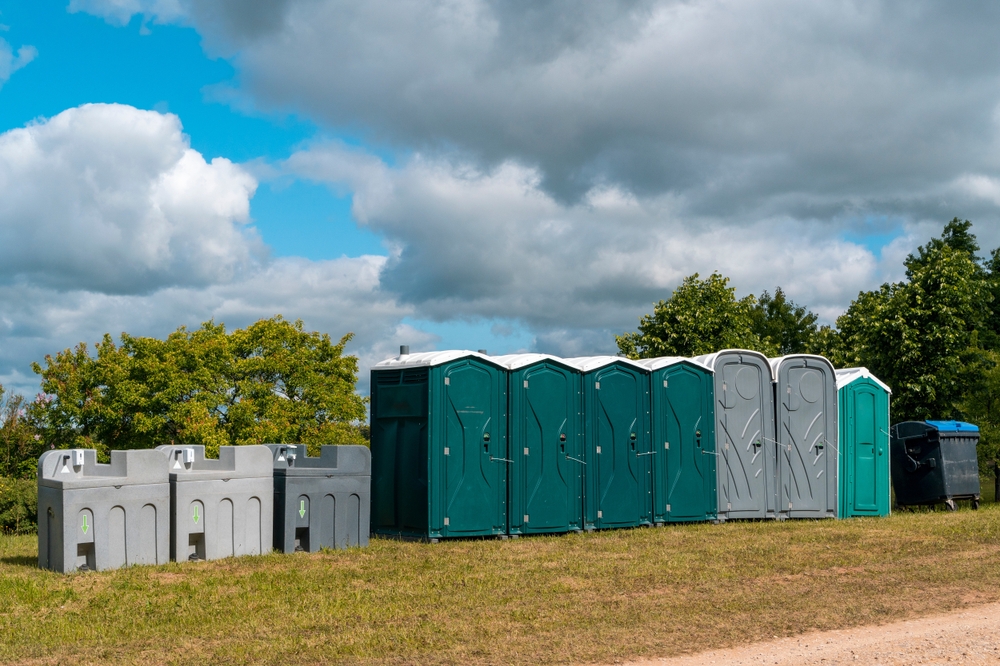
In the realm of workplace safety and hygiene, handwashing stations might not be the most glamorous feature, but they play a crucial role in maintaining a healthy and efficient work environment. From construction sites to manufacturing plants, the presence of handwashing stations can make a significant difference in protecting workers’ health and boosting overall productivity. This article explores the unseen benefits of handwashing stations on work sites and addresses key questions about their necessity and regulations.
What is a Handwashing Station?
A handwashing station is a designated area equipped with the necessary facilities to allow individuals to wash their hands effectively. These stations are typically furnished with a sink or basin, running water, soap, and a method for drying hands, such as paper towels or air dryers. In various work environments, particularly those involving physical labor or exposure to contaminants, these stations are essential for ensuring that workers can maintain proper hygiene.
Handwashing stations can come in different forms, depending on the needs of the work site:
- Permanent Installations: These are fixed units often found in construction site trailers, factory restrooms, or other permanent facilities.
- Portable Stations: These are mobile units that can be easily transported and set up on temporary job sites or areas without permanent plumbing.
- Specialized Stations: Designed for specific needs, such as those in food processing plants where additional sanitation measures are required.
Why Are Handwashing Stations Important?
Enhancing Worker Health
Handwashing is one of the most effective ways to prevent the spread of infectious diseases. On work sites, where workers are exposed to various contaminants such as dust, chemicals, or biological agents, maintaining clean hands is crucial. Effective handwashing helps to:
- Reduce the Spread of Illness: Regular handwashing can significantly lower the risk of spreading contagious illnesses among workers, leading to fewer sick days and reduced absenteeism.
- Prevent Infections: Proper hand hygiene can prevent infections from getting into wounds or cuts, which is particularly important on sites with a high risk of injury.
Improving Productivity
Healthy workers are more productive. When employees are not sick or dealing with infections, they can focus more on their tasks, leading to improved efficiency and fewer delays. Clean hands also contribute to better handling of tools and materials, reducing the risk of cross-contamination and ensuring that equipment functions properly.
Compliance with Regulations
Maintaining handwashing facilities is not just a good practice; it’s often required by law. Regulations and guidelines exist to ensure that work environments are safe and hygienic.
Are Hand Washing Stations Required by OSHA?
Understanding OSHA Requirements
The Occupational Safety and Health Administration (OSHA) sets standards for workplace safety and health in the United States. According to OSHA regulations, employers must provide adequate sanitation facilities to maintain a safe and healthy work environment. This includes ensuring that employees have access to handwashing facilities when needed.
OSHA regulations specify that:
- Access to Sanitation Facilities: Employers must provide access to handwashing facilities, especially in work environments where workers are exposed to contaminants or where food is handled.
- Adequate Supplies: Handwashing stations must be equipped with clean, running water, soap, and a means of drying hands. The facilities should be maintained in a sanitary condition.
Compliance in Various Work Environments
Different industries may have specific requirements for handwashing facilities based on the nature of the work. For example:
- Construction Sites: OSHA requires that handwashing stations be provided on construction sites where workers are exposed to hazardous substances or have the potential for injury.
- Food Industry: In food handling and processing environments, handwashing facilities must be readily accessible and maintained to prevent foodborne illnesses.
- Healthcare Settings: Healthcare facilities must provide handwashing stations to comply with infection control practices and protect both patients and staff.
Unseen Benefits of Handwashing Stations
While the primary benefits of handwashing stations are related to health and compliance, there are additional, often overlooked advantages:
Boosting Morale and Worker Satisfaction
Providing proper hygiene facilities demonstrates that an employer values the health and well-being of their employees. This can lead to higher morale and job satisfaction, as workers feel that their needs are being addressed. In turn, this positive attitude can contribute to a more cohesive and motivated workforce.
Enhancing Site Cleanliness
Handwashing stations help to maintain a cleaner work site by encouraging workers to wash away contaminants before they spread to other areas. This can reduce the overall mess and potential hazards on the site, contributing to a safer and more organized work environment.
Reducing Environmental Impact
Modern handwashing stations are designed with environmental considerations in mind. Many units feature water-saving technologies and eco-friendly soap options, helping to minimize the environmental footprint of the work site.
Implementing Effective Handwashing Stations
To maximize the benefits of handwashing stations, it is important to implement them effectively:
Placement and Accessibility
Ensure that handwashing stations are placed in easily accessible locations, where workers can use them without significant delays. In high-traffic areas, such as near entrances to work zones or within break areas, stations should be clearly visible and reachable.
Regular Maintenance
Maintain handwashing stations by regularly checking and refilling supplies, cleaning the stations, and ensuring that all components are in good working order. Regular maintenance helps to keep the facilities functional and hygienic.
Training and Awareness
Educate workers on the importance of hand hygiene and how to use the facilities properly. Providing training can help to reinforce the habit of regular handwashing and ensure that employees understand the role these stations play in their health and safety.
Conclusion
Handwashing stations may seem like a simple component of a work site, but their impact on safety, health, and productivity is profound. By understanding their benefits and complying with regulations, employers can create a safer and more efficient work environment. From reducing the spread of illness to boosting worker morale, the unseen advantages of handwashing stations extend far beyond their basic function. Investing in proper handwashing facilities is a crucial step toward ensuring the well-being of workers and the success of any work site.
Need Portable Restrooms in Napa, CA?
Welcome to Johnny on the Spot! Established in 1990, Johnny on the Spot has been the premier provider for portable restroom rentals throughout Napa and Solano counties. We have basic stationery units, ADA accessible units, single mobile units, deluxe fresh flush units, VIP solar-powered units, and free-standing handwash stations. Our portable units are perfect for special events like weddings, festivals, sporting events, and casual gatherings. They are also ideal for construction and remodeling sites. In addition to restroom rentals, we also provide RV restroom servicing and customer-owned portable restroom servicing. At Johnny on the Spot, we are dedicated to providing our customers with quality and reliable service. Call us today!
